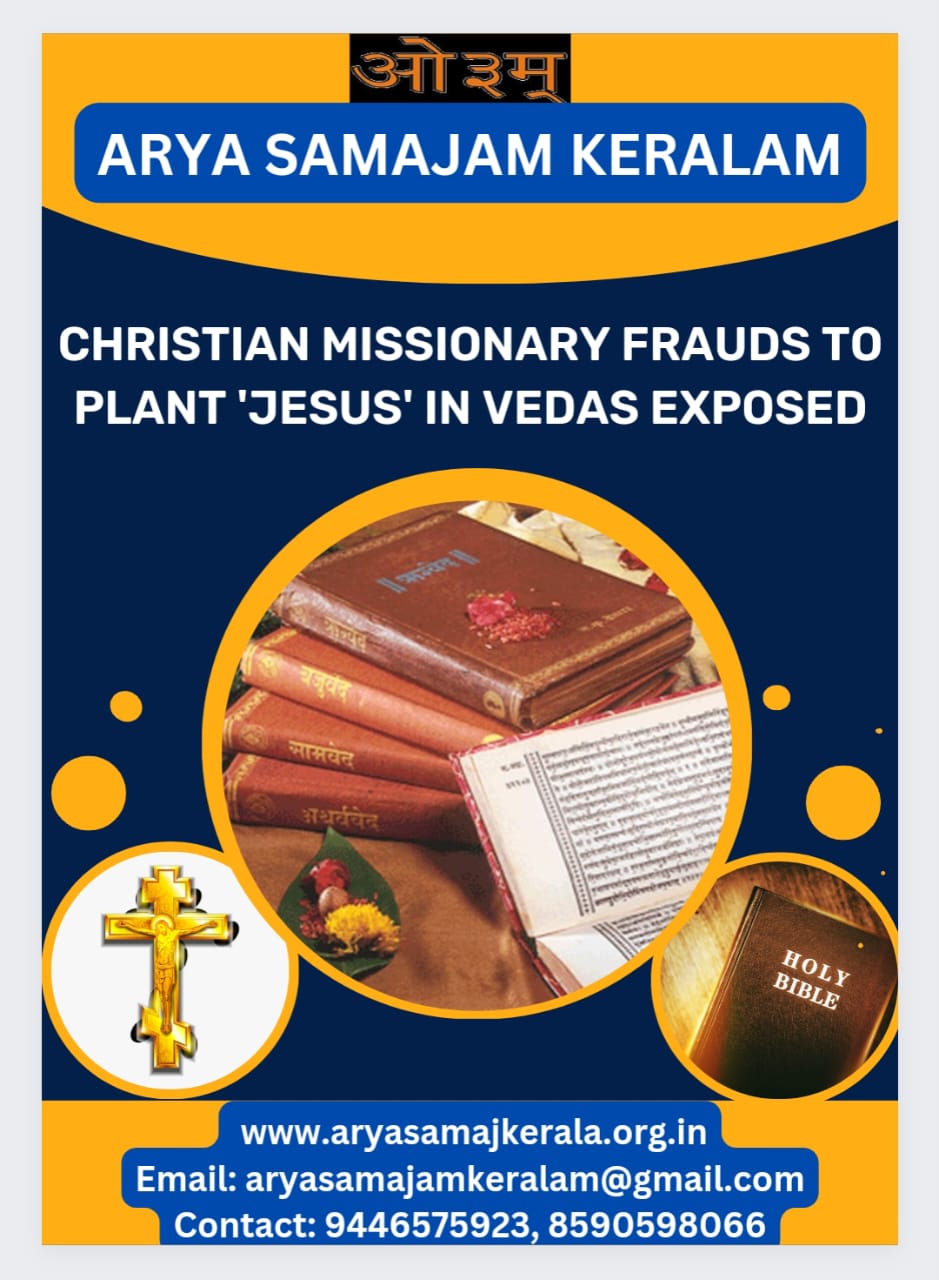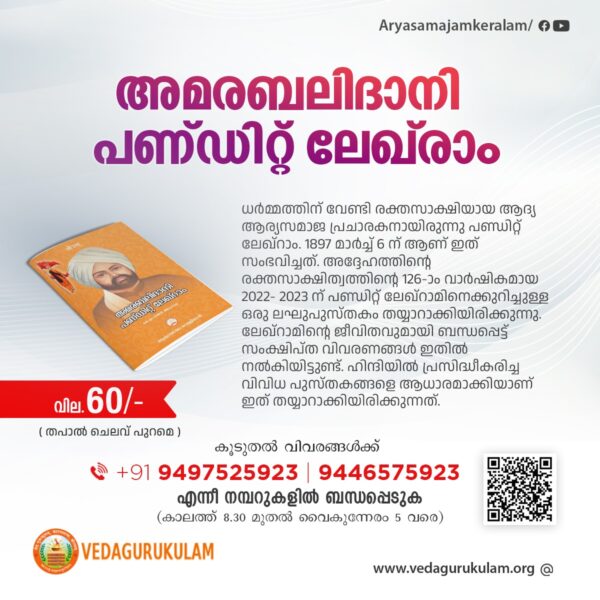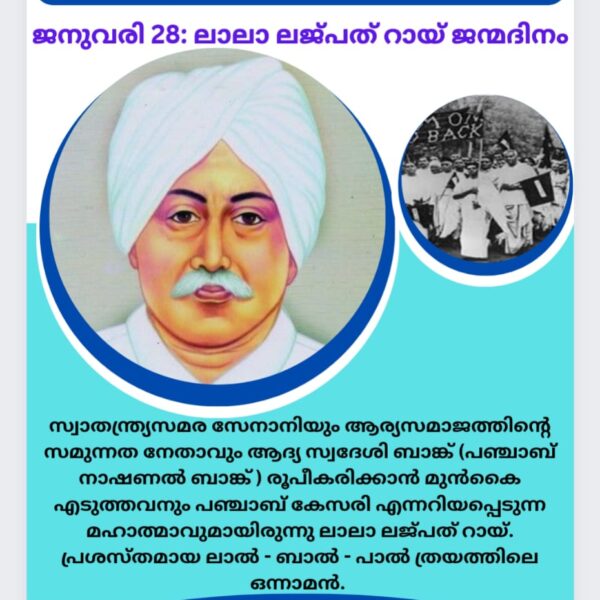- K. M. Rajan Meemamsak
The Christian missionaries were making an all out assault on degrading our hindu beliefs, our sacred scriptures and there by convert en mass hindu brothers who are ignorant of our religious ideals. Earlier their sinister propagation was against our epics, Puranas and historical characters like Sree Ram and Sree Krishna. Due to the influence of Ramayan and Mahabharath epics and its TV serials like Ramayan etc. (as there is no provision for giving religious education in our schools as secularism forbid teaching Hindu dharmic topics, hence we have to depend upon the popular tele serials like Ramayan and Mahabharath), majority of hindus were able to understand and counter any allegation against their such holy books. But unfortunately, Vedas the revealed knowledge and the root of Indian (even entire creation of the world) civilization did not get such popularity among the general public. There are many reasons for this. I do not want to elaborate it here as now our task is to counter the evangelists who are trying to defame our Vedic religion.
Christian Missionaries after their failure in refuting Vedas and Hindu scriptures even after repeated attempts, their tactics to dupe naïve Hindus had changed. Now their attempt is to – To prove that Jesus arrival was prophesied in Vedas and there by Hindus should convert to Christianity. Following the path of these Christian propagandists , Jihadi’s are also trying die hard to plant their Allah and Muhammad into Vedas.
ONE OF SUCH CLAIM BY CHRISTIANS PROPAGANDISTS IN VARIOUS FORUMS AS PART OF AN ORGANISED CONSPIRACY IS AS FOLLOWS
If Krishna is a far cry from the superlative person of Jesus, there is another person in the Rig Veda who fits the comparison most. As there are 73 books in the Holy Bible, there are 10 books in the Rigveda (Ten mandalas). First nine mandalas refers to a God and presents methods of worship as rituals. In the tenth mandala, besides this Lord Almighty, there is the mention about a man. The first born and only born son of the God. His name is ‘Prajapathi’. Prajapathi, the son of the God comes to this world at the appropriate time. After coming to this world he travels around advising mankind, what is sin and what is not sin; what is to be done and what is not to be done; what is wrong and what is right. To those human beings, who accept his advises and obey his orders, he offers prosperity and peace in this worldly life and salvation at the time of their death. And being the completion of his venture to redeem mankind from sin, he gets sacrificed at the end his specified period on earth.
In verse 7 chapter 90 of the 10th book of the Rigveda, the sacrifice of Prajapathi the Son of God, is well explained.
‘At the time of sacrifice, the son of God will be tightly tied to a wooden sacrificial post using iron nails by hands and legs, he will bleed to death and on the third day he will regain his life in a resurrection.” Evidently none of the avatars meets this description. Nor are they expecting another incarnation, which will fit the description and attributes
COUNTERING THE ALLEGATIONS
Now let us counter the allegation verse by verse.
Allegation 1. In verse 7 chapter 90 of the 10th book of the Rigveda, the sacrifice of Prajapathi the Son of God, is well explained.
‘At the time of sacrifice, the son of God will be tightly tied to a wooden sacrificial post using iron nails by hands and legs, he will bleed to death and on the third day he will regain his life in a resurrection.”
Reply : This Hymn is from Purusha Sooktha of Rig Veda. It is repeated in Yajurveda also. The meaning of this Hymn is as follows “O men know Him, the perfect God, existent before the creation of the world, and highly adorable, Him the learned, the yogis and the Rishis realize in the innermost recesses of their hearts, and worship as directed by the Vedas preached by Him!’ There is no mention of cruzification by nails, bleed to death, resurrection etc.
Allegation 2: “sa paryaghachachukramakayamavranamsnaviram shudhhamapapavittham kavirmanishi paribhur swayambhur yadhathathadhyathor viyadhadhachasvathibhyo samabhyaha”
Reply: This manthra is from Isavasyopanishat (also the 8th manthra of 40th chapter of Yajurveda). Its meaning is “God is All pervading, Lustrous, Bodiless, Flawless, Sinewless, Pure, unpierced by evil. He is omniscient, knower or the hearts of all, censurer of the sinful, and self-existent. He truly reveals through the Vedas all things for His subjects from His immemorial attributes, free from birth and death” Nowhere here the Jesus seems to have any resemblance. The description of the Supreme God mentioned in the referred Upanishads also do not substantiate the biblical view of God.
The Hymns of Purusha Sooktham mentioned in the articles and their concept of meaning can only foolish those who do not know basic Sanskrit knowledge. See a classic example (this I already pointed out in reply to Allegation 1 above). In vedic literatures, the word yagya is not similar to the meaning of sacrifice as being followed by Christians and Muslims (for them sacrifice means killing of men or animals as an offering to God!). Vedas totally prohibits killing of any creatures for any purpose including food needs also. The Prajapathi mentioned in Vedas do not have any resemblance with the man God Jesus!
It is very interesting that the Christian propagandists are now willing to accept that Vedas originated even before their Bible and Jesus. It will also be interesting to search the truth that the life of Jesus was missing from his age 13 to 30 yrs from history books. In his research book titled ‘Christianity is Krishnanity’ by renowned historian and INA veteran Late Sri. PN Oak clearly proved with strong evidence regarding this view. Since our missionary brothers started acknowledging the Vedas, it is right time for them to study more on Vedas, Hinduism and return to their parent religion i.e. Vedic Religion!
Om Krinvantho Vishwamaryam !
🙏
K. M. Rajan Meemamsak
Arya Prachaarak & Adhishtatha,
Veda Gurukulam, Kerala.



